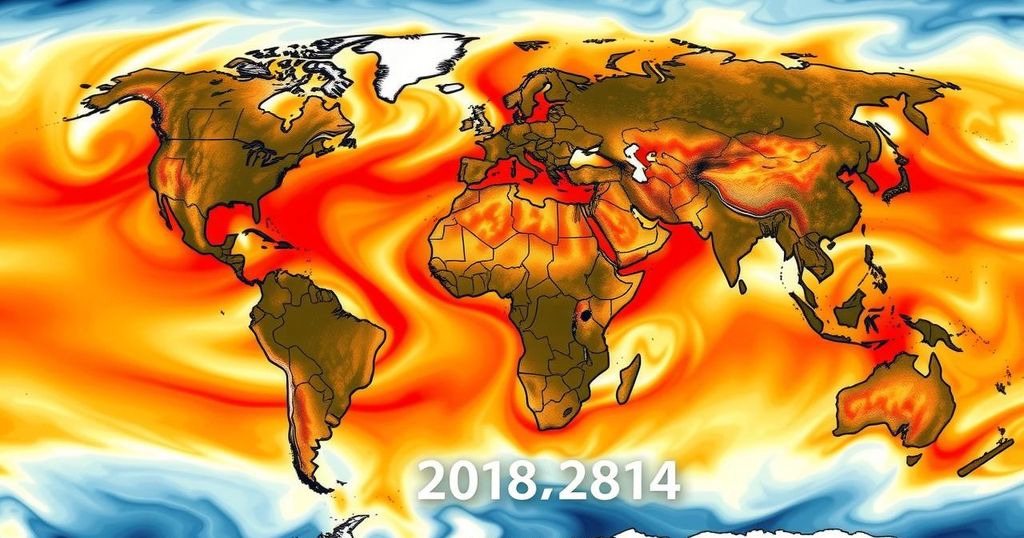2024 Confirmed as Record-Breaking Warmest Year, Urging Global Climate Action

2024 is confirmed as the warmest year on record globally since 1850, with average temperatures exceeding 1.5 degrees Celsius above pre-industrial levels, as reported by Copernicus. This year’s temperature reached 15.1 degrees Celsius, highlighting the urgency for global action against climate change amidst severe weather events caused partly by human activity and the El Niño phenomenon.
The year 2024 has officially been designated as the warmest year on record globally since systematic observations began in 1850, as confirmed by the Copernicus Climate Change Service (C3S). This unprecedented increase in temperature underscores an urgent call for substantial international efforts to combat climate change. During this year, the average global temperature rose to 15.1 degrees Celsius, which is 0.12 degrees Celsius higher than the previous record set in 2023 and represents a significant 1.6 degrees Celsius increase from pre-industrial levels.
Moreover, 2024 stands as the first full calendar year where the global average temperature surpassed 1.5 degrees Celsius above pre-industrial levels, a critical parameter outlined by the Paris Agreement. The Copernicus report highlights that the average temperatures for both 2023 and 2024 exceeded this threshold, emphasizing the continuing challenge of climate change. Although this data reflects a concerning rise in temperatures, it is explained that these figures pertain to temperature anomalies averaged over at least a span of 20 years.
The C3S further revealed that water vapor content in the atmosphere has reached record elevations, significantly more than previously recorded averages. High global temperatures, along with increased atmospheric moisture, have resulted in severe heatwaves and flooding events, adversely impacting millions globally. According to Samantha Burgess of the European Center for Medium-Range Weather Forecasts, the combination of these phenomena has led to devastating climatic conditions.
Julien Nicolas, a C3S climate scientist, attributes the extreme temperatures to anthropogenic climate change, while acknowledging the influence of the El Niño Southern Oscillation, which also contributes to elevated ocean temperatures. C3S Director Carlo Buontempo has urged current and future leaders to undertake urgent actions to steer climate trends towards a manageable path, reinforcing the sentiment that collective efforts can significantly influence future climate trajectories.
The persistence of rising global temperatures serves as a harbinger of the alarming climatic changes underway, warranting the global community’s immediate attention and action. The 2024 data not only establishes a new record but also reflects a consistent trend exacerbated by human activities. The Paris Agreement aims to mitigate climate change impacts by maintaining temperature increases within certain limits, emphasizing the pressing nature of these revelations from climate scientists.
The confirmation of 2024 as the warmest year on record highlights the ongoing climate crisis and the importance of immediate, concerted global efforts to address it. The data presented serves as a wake-up call, urging governmental bodies and individuals alike to implement strategies that can potentially reverse or mitigate the consequences of climate change. The findings reiterate the critical need for adherence to the agreements set forth in international climate policy, notably the Paris Agreement, to protect the planet’s environment for future generations.
Original Source: www.socialnews.xyz






